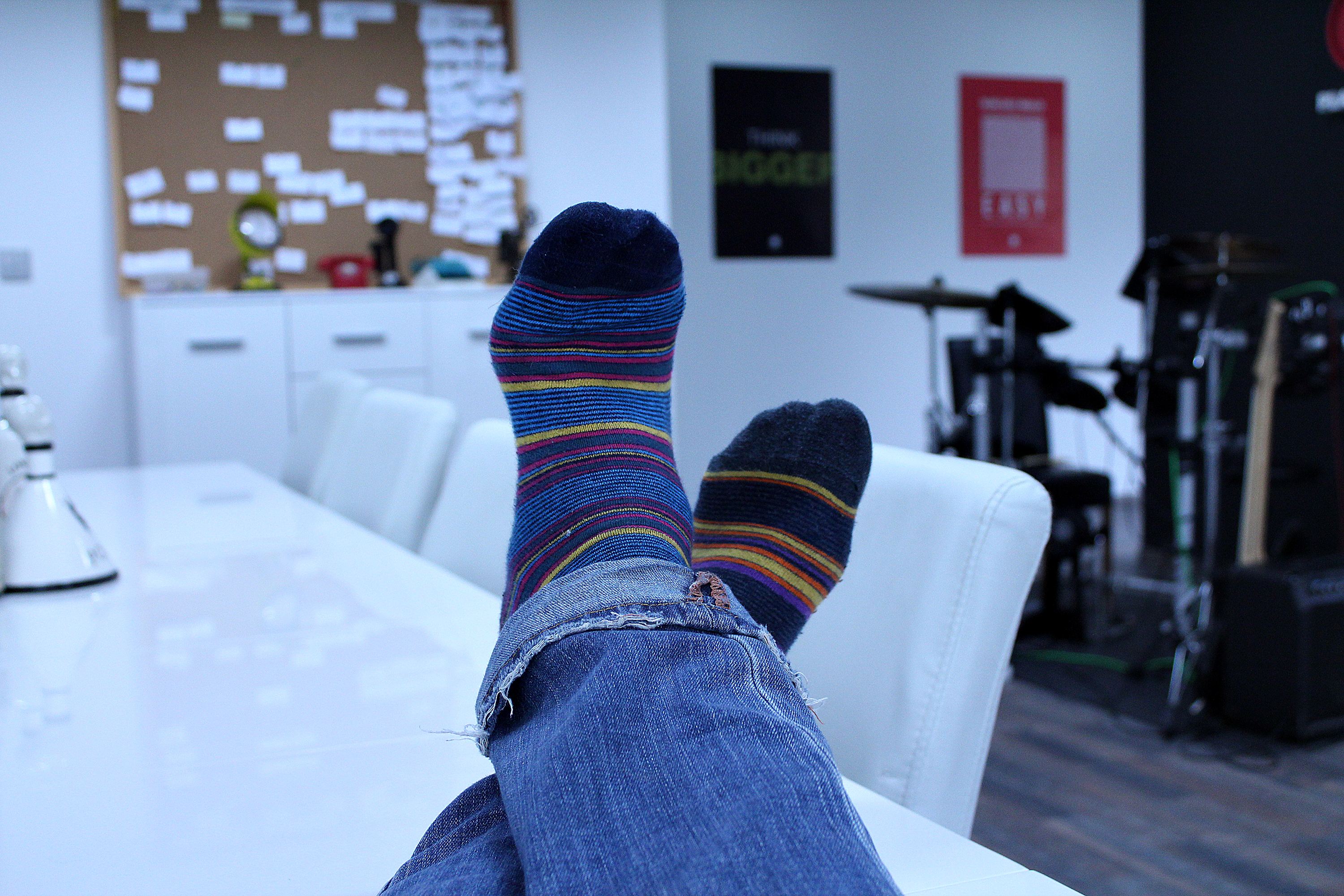7 Personal Growth Hacks to Survive a Coding Bootcamp

Develop a well-rounded skillset in programming with these essential “soft skills” as you learn how to code in coding bootcamps, based on our Codementor Office Hours with Haseeb.

To kickstart a career in programming, coding bootcamps are great opportunities for both computer science and non-computer science degree holders—especially for the latter. Learning through a coding bootcamp is a cross between self-learning and taking official lectures in computer science, which means it is highly immersive and comprehensive. This accelerated learning is intensive and demanding of time and money, so the pressure to survive can make students feel anxious. And anxiety is a major deterrent to learning.
Going through coding bootcamps will advance your technical skills in programming, for sure. But essential to a career in development are these non-tech habits and abilities you should develop and use so you don’t just survive a coding bootcamp, you thrive in it.
1. Tenacity

Coding bootcamps are called “bootcamps” for a reason. It’s a high intensity program that you take for a short time (compared to a CS degree) that gets you ready to become a professional programmer. Because it is a short program, expect it to be dense and intense. It’s not for the faint of heart and to prepare for it, try to learn as much as you can before getting into this beautiful mess. The pressure to learn is higher if you go through coding bootcamp as opposed to just teaching yourself how to code. But pressure can be a good thing as it can motivate you positively. Having great work ethic and a willingness to do what needs to be done is a key skill if you plan to survive this relentless coding bootcamp journey.
2. Goal-oriented focus

Whether it is to take your programming skills to a professional degree, or any other reason to take a coding bootcamp, be upfront with yourself about what your goals are so you can properly manage the appropriate time and energy demands. And when you do, set aggressive goals to motivate yourself. Understand that your goals and your motivations are interdependent for your success as a coding student. The good thing about a coding bootcamp is its intensity leaves students no time to be lax. It is the perfect setup for motivation but setting aggressive goals can push you even further to strive.
3. Attentiveness

Genuinely be interested in learning. Don’t just go through the modules with the goal of just finishing it. Really take everything in and take notice of the areas you need to improve on or how you can solve certain problems better. Willingness to learn only opens up more learning opportunities and allows innovative thinking. But attentiveness doesn’t just mean being mindful of the things you are learning, it also means paying attention to yourself. Be honest enough to yourself that you will not learn everything, and that some problems are more difficult than others. By noticing how and what you truly feel with what you are learning, it only improves the way you as programmer can respond to problems. Constantly assess yourself and question which skill you need to improve on.
4. Meditation and mindfulness
(Haseeb talking about the role of meditation in helping curb anxiety in coding bootcamps)
If you haven’t learned the benefits of meditation, perhaps now is the perfect time to discover it. Due to the high stress environment of coding bootcamps, with long working hours and difficult problem sets, it’s no surprise why students feel burnout. You will use your mind a lot as you go along with the program and it’s important to give your mind some room to breath so you can have more space for thinking. A clear mind can give you clear thoughts and meditation will help keep anyone focused. Apps like Headspace are wonderful to get into meditation and it won’t take a lot of your time. I wouldn’t necessarily recommend meditation to everyone, this is more of a “pro-tip” than a “must-do.” Spending 10 minutes of your time to meditate or any other activity to help clear your thoughts will truly make a difference in your day.
5. Learn to take breaks

Apart from daily meditation, you also don’t want to work on something for too long at a time. Stuck on a problem? Your brain gets fatigued after a while, and maybe that’s the reason why you can’t get anything done right. The only way around it is to take a little break. Don’t push yourself too hard and don’t feel bad to step away from the computer for a little while—you need it. Taking breaks to relax, de-stress, and clear your head can be more productive than forcefully learning and thinking. Walk around a little, have a little snack, take your mind off coding briefly. And once you get back to work, you will feel energized.
6. Don’t let stress bottle up; be honest about anxiety

Pressure can get to anyone and the everyday demands of learning to code through a bootcamp can make you feel trapped with the mounting pressure to learn and perform better. If you let pressure build up inside, you will become more and more anxious and miss out on finding the fun and interest in actually learning. And chances are, your peers are also going through the same thing. No one needs to go through this alone, talk to the people around you. Talk to your mentors, classmates, or even join communities online and they of all people will understand how it’s like to be under so much pressure. There’s a saying, “honesty undoes anxiety” and opening up about what worries you during the bootcamp will only serve to build rapport among fellow coders, and better understanding of yourself.
7. Being okay that you won’t learn everything at once
(How accepting the fact that you will not master everything at the end of the coding bootcamp will help you become better)
Learning something new is a slippery slope, and if it’s this highly technical and competitive, it’s easy to get lost among the sea of information you are learning day in and day out. Coding bootcamps are designed for optimum learning, but don’t feel bad if you don’t learn everything, because chances are, you might never truly will. You went in a coding bootcamp with hardly any knowledge of programming, so whatever you learn at the end of it, you should be proud of yourself. Let go of the idea that you must absolutely learn every little bit of technology during your time in the bootcamp. You won’t learn everything and that’s perfectly okay. And besides, if you’re planning a career in programming for the long haul, bootcamp might be the easiest part of it. So if you haven’t already, continue practicing through websites like Codewars to keep mastering your skills with real coding challenges. Take everything as an opportunity for learning and accept that you might know everything now, but as long as you keep at it, you’ll learn it eventually.
Other Posts in this Series:


